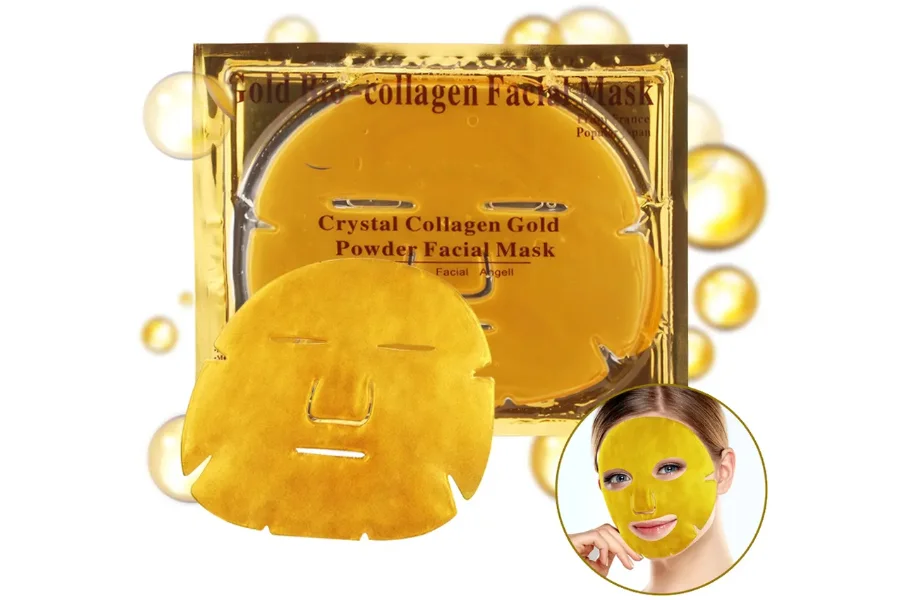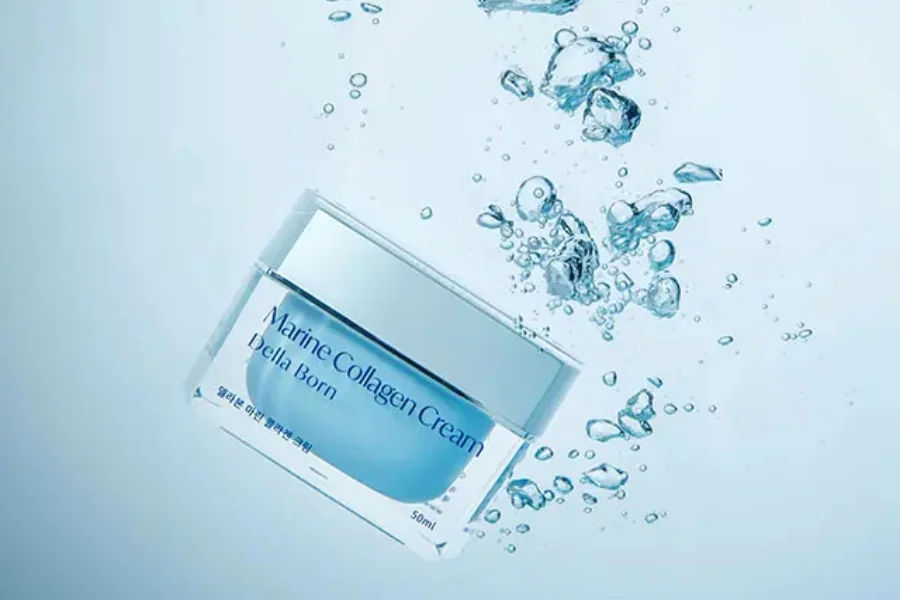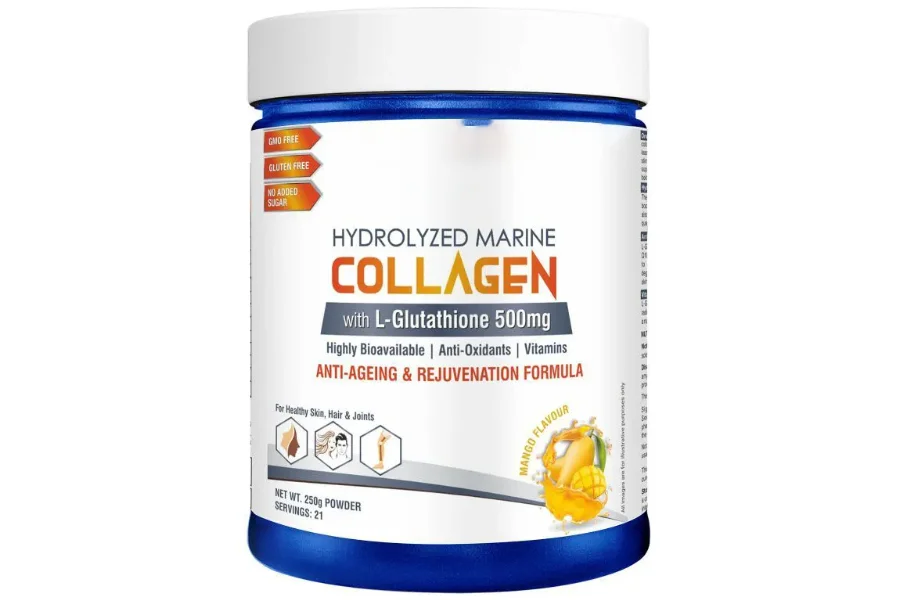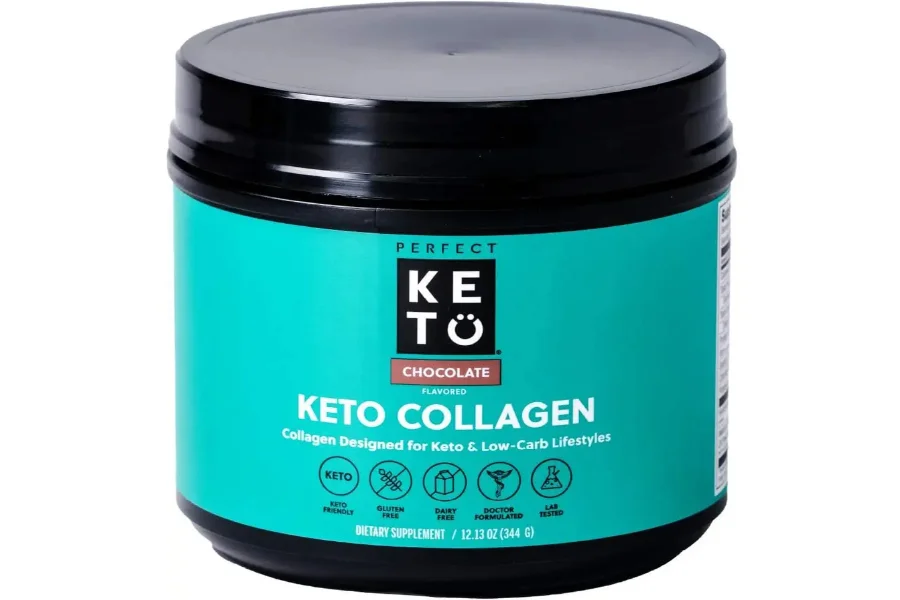The use of collagen in cosmetics and body care is increasing, leading manufacturers to develop new products. This article discusses how you can leverage this powerful ingredient to increase revenue.
Table of Contents
Market growth and demand for collagen
4 advanced collagen skincare trends
Moving forward
Market growth and demand for collagen
Collagen has experienced significant market growth in recent years, driven by increasing consumer interest in health and wellness products.
According to a report by Grand View Research, the global collagen market is expected to reach USD 19.9 billion by 2030, at a compound annual growth rate (CAGR) of 10.2% from 2023 to 2030. Asia Pacific has the largest market share at 22% because of its established meat processing industry.
This demand and growth are in response to collagen’s various health benefits. It slows down aging and improves hair and nails. As a result, there’s an upward trend in investments in collagen beauty products, boosting the industry.
Because of its rapid absorption rate, market growth will also be driven by collagen in liquid form. Nonetheless, collagen is still popular whether applied topically or taken in supplements.
4 advanced collagen skincare trends
The collagen industry is evolving because of advanced technology and changing trends. The following trends will help you meet customers’ needs and retain their loyalty;
1. Vegan collagen products
Manufacturers genetically modify yeasts and bacteria to produce vegan collagen, making the supplement one of the best ways to improve the skin’s health. Since it’s grown in a lab, it can be mass-produced and scalable, reducing the cost of collagen for everyone.

Consider offering vegan collagen products to environmentally-conscious consumers, educating them about the benefits of switching to biotech and vegan alternatives from bovine (cow/animal-based) collagen.
2. Marine collagen boom
Manufacturers extract marine collagen from fish scales, bones, and flesh to make various collagen products. Marine collagen products are popular because they’re digestible in supplements and absorbable in cosmetics.
Therefore, according to this report, the marine collagen market is predicted to grow at a CAGR of 7.35% from 2020-2025, with North America dominating the market due to its large fishing industry.
Marine collagen has immense benefits. It enhances the skin’s structure and appearance and helps people maintain their youthful glow and skin elasticity.

When leveraging this trend, focus on collagen’s hydrating properties, i.e, how well it binds to moisture, thus reducing oiliness by maintaining moisture levels in the skin. Also, look to collagen products whose producers use biotechnology to boost their efficacy.
3. Collagen beauty supplements
In addition to their skin benefits, collagen supplements are a source of low-calorie protein.
Collagen supplements help reduce wrinkles and skin dryness. The collagen in some of these supplements is hydrolyzed. That means manufacturers broke down the collagen protein into smaller pieces for the body to absorb it easily.

Open communication will help build a trust-based relationship with your customers, which is good for business. Market collagen supplements in a way that addresses issues like sustainability, animal rights issues, and efficacy data.
4. Provide beauty opportunities beyond skincare
Collagen is not only vital for the skin, but it also improves muscle and bone health. Great collagen levels in the scalp and cuticles also boost hair and nail growth.
Collagen may also help boost the health of the joints and reduce the risk of heart conditions.

Provide collagen solutions beyond its skin benefits to attract customers. Offer collagen products that boost the health of the hair, tissue, and other body parts to gain a competitive edge.
Moving forward
Collagen is an essential protein that helps maintain the skin’s health, but as we age, our bodies produce less of it. As a result, collagen-based skincare products have become increasingly popular in recent years.
The above article explores four emerging anti-aging industry trends that are changing how we think about collagen and skincare. These include the rise of ingestible collagen supplements, the use of collagen in haircare products, the integration of collagen into makeup and foundation, and the development of plant-based collagen alternatives.
With these exciting trends, collagen-based products will continue to play a crucial role in the skincare world for years.




